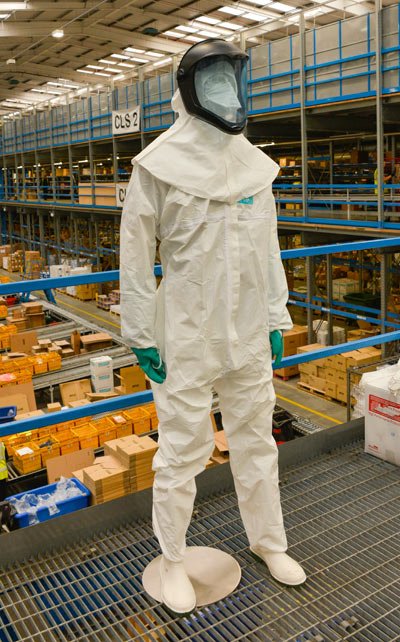
Since the Ebola outbreak, more than 4,000 people in West Africa have died from the disease and it has started to reach countries such as Spain, Germany and the US.
Transmitting the disease
The Ebola virus spreads in humans through person-to-person transmission via direct contact (through broken skin or mucous membranes) – the blood, secretions or other bodily fluids of infected people and with surfaces and materials (e.g. bedding and clothing) contaminated with these fluids. People remain infectious as long as their body fluids, including sweat, contain the virus. This includes the infected deceased.
Most at risk of infection (after family members) are doctors, nurses and other healthcare workers who are treating Ebola patients in environments where infection control precautions are not strictly practiced. This, then, is an occupational health concern, not just a public health issue.
Best practice
To ensure understanding and implementation of best practice in preventing and controlling the spread of Ebola during its treatment, and to control the risk of infection of healthcare workers, occupational hygiene has a fundamental role to play.
For example, in a confirmed Ebola case, applying the right control measures along the transmission path (by engineering controls) and at the worker level (by administrative controls and personal protective equipment [PPE]) are vital.
Engineering controls include:
- isolation
- containment
- segregation
- local exhaust ventilation [LEV]
PPE measures include:
- effective hand hygiene
- the use of double gloves
- Type 4 fluid repellent disposable suits
- face and eye protection
- FFP3 disposable respirators
Administrative controls would include the appropriate donning, doffing and disposal of all PPE and infected waste, as well as broader public health actions such as categorisation and management of contacts.
UK preparations
For this outbreak, the UK has pledged £125 million to support the global effort to contain, control and defeat the disease in Sierra Leone. Part of this commitment includes the supply of over half million disposable coveralls, hoods, gloves, respirators and full-face visors. This kit, supplied by Arco, if donned and doffed correctly, will protect the worker from infection. As it is designed for single use, it is effectively disposed once worn.
These measures must be accessible as soon as an infected patient is identified, so the role of occupational hygiene in the protection of health care workers should begin much earlier in a hospital’s procedures, when the risks are assessed and the correct control approach is put into place and implemented in time.
Other occupations at risk of Ebola infection include ambulance staff, laboratory workers, public health professionals, mortuary and funeral personnel – all whose work places, systems and procedures require the application of similar and timely occupational hygiene principles and practice to enable effective prevention and control in the future.
Fire Safety in 2023 eBook
SHP's sister site, IFSEC Insider has released its annual Fire Safety Report for 2023, keeping you up to date with the biggest news and prosecution stories from around the industry.
Chapters include important updates such as the Fire Safety (England) Regulations 2022 and an overview of the new British Standard for the digital management of fire safety information.
Plus, explore the growing risks of lithium-ion battery fires and hear from experts in disability evacuation and social housing.


